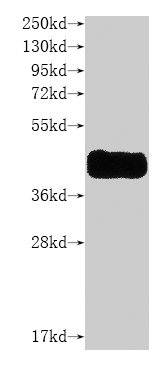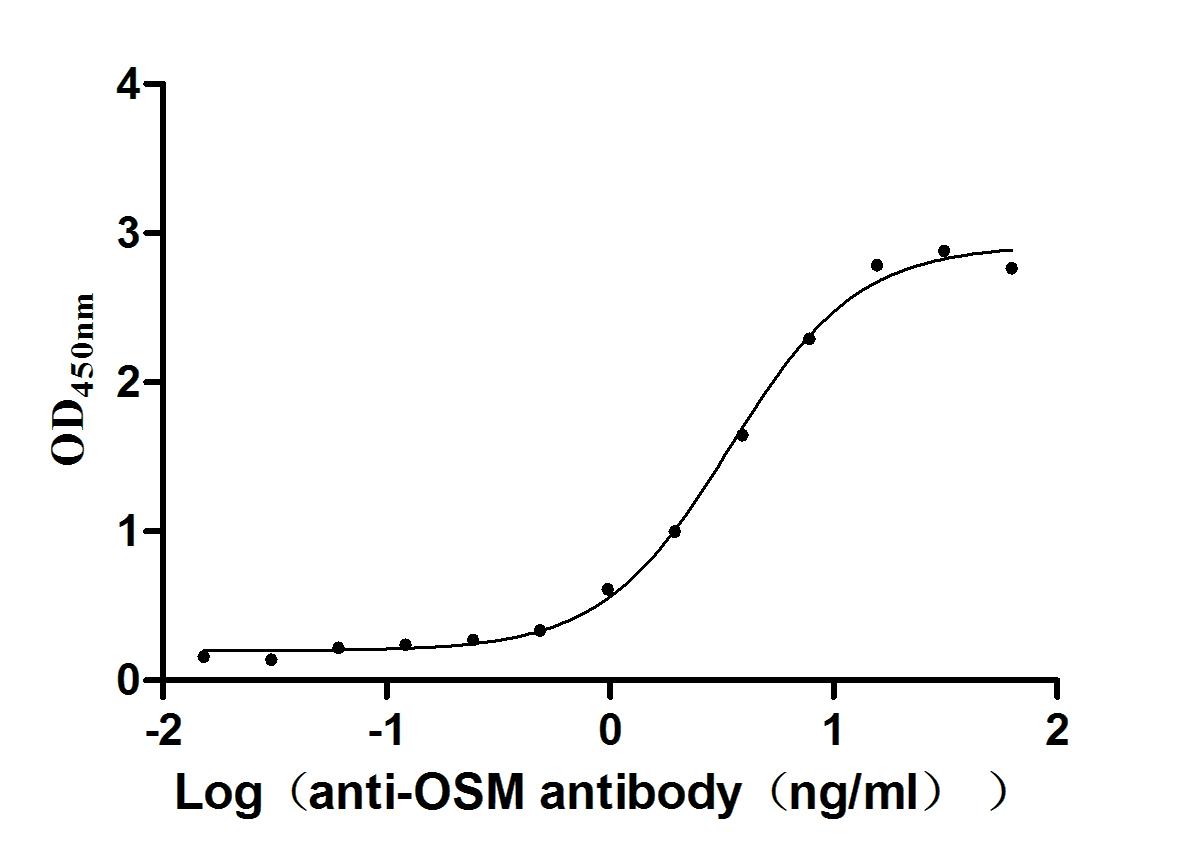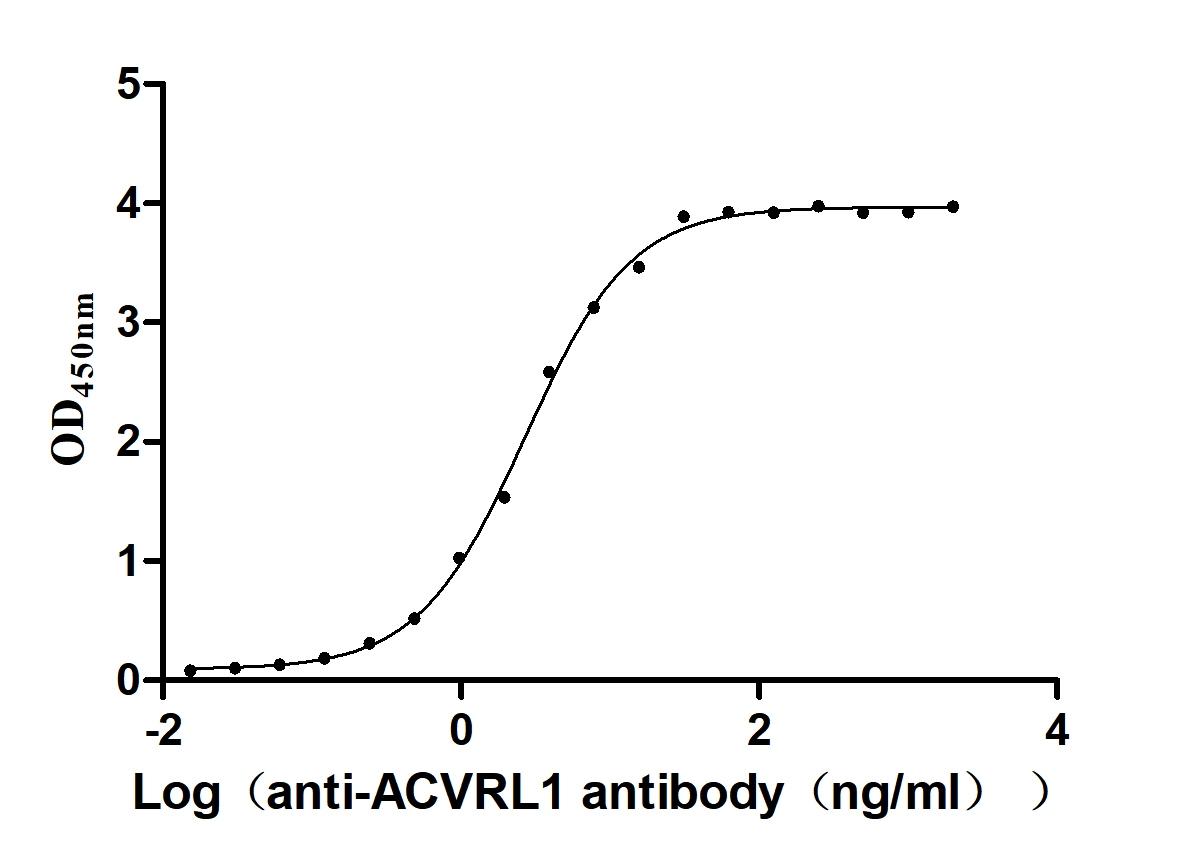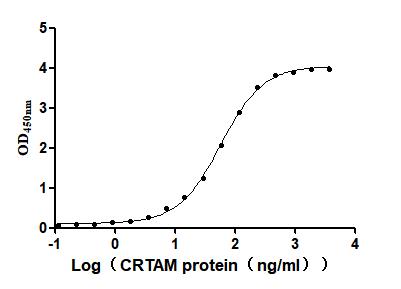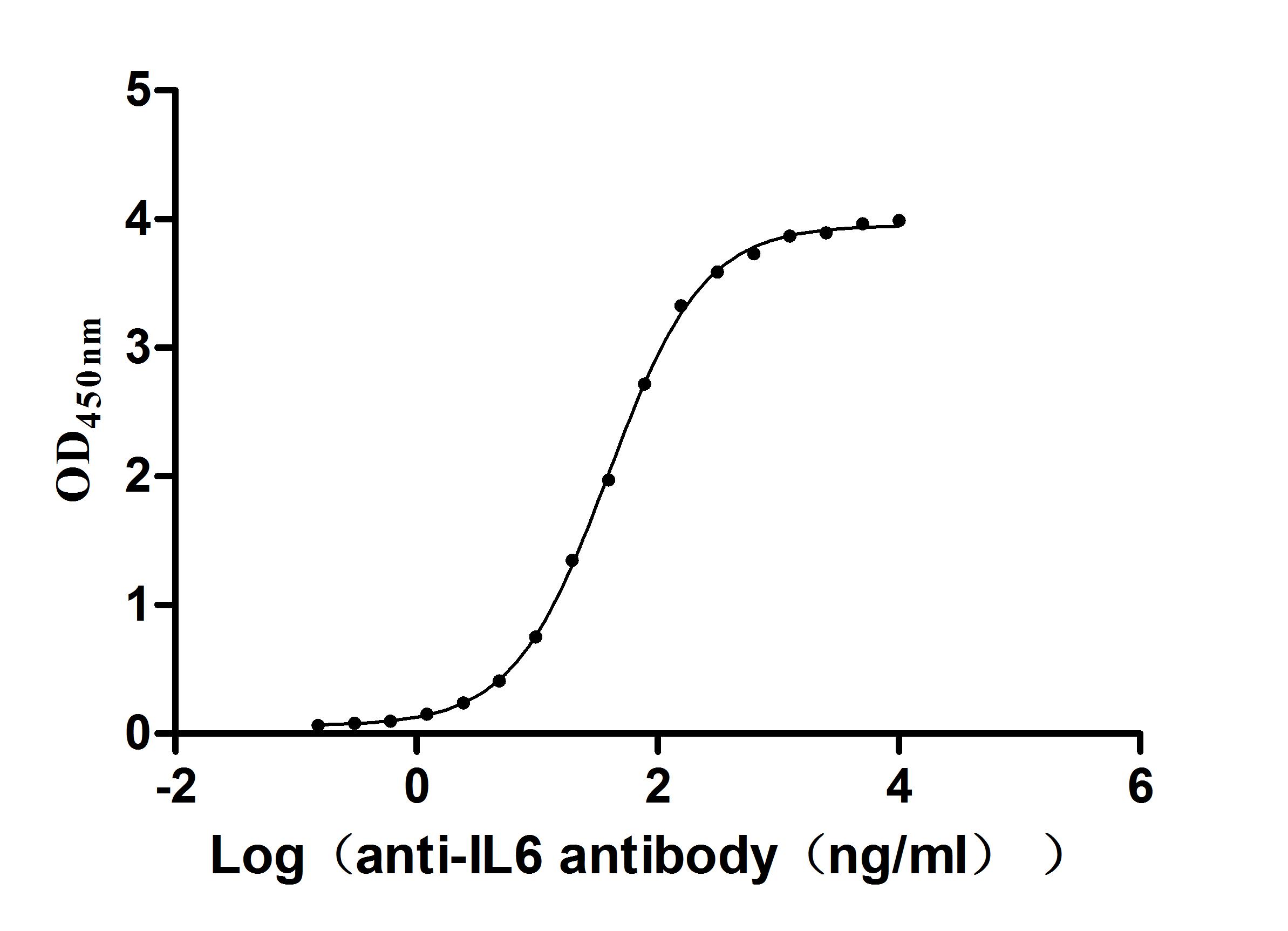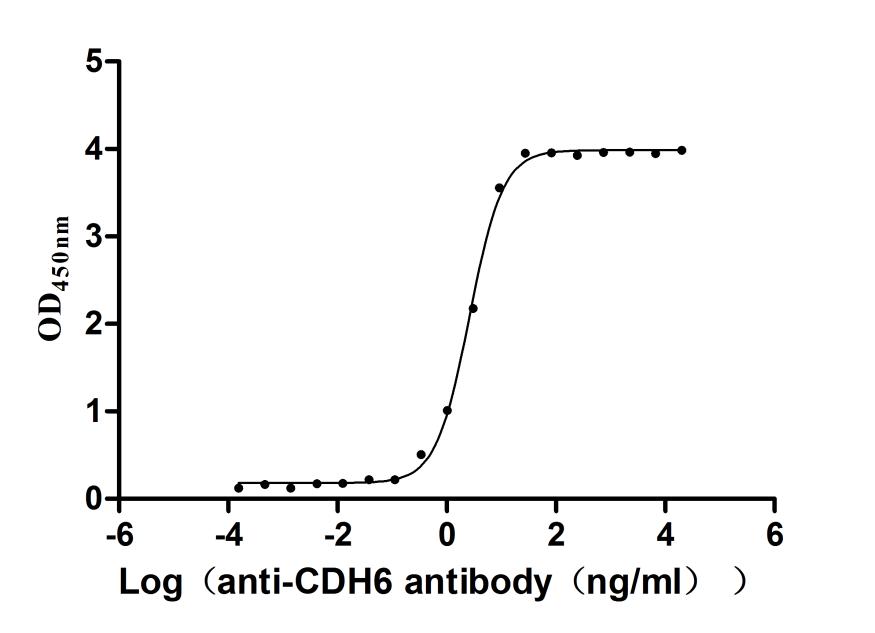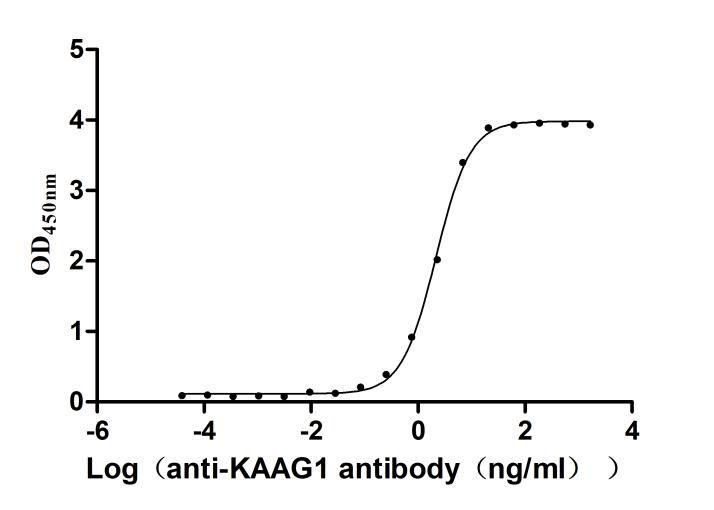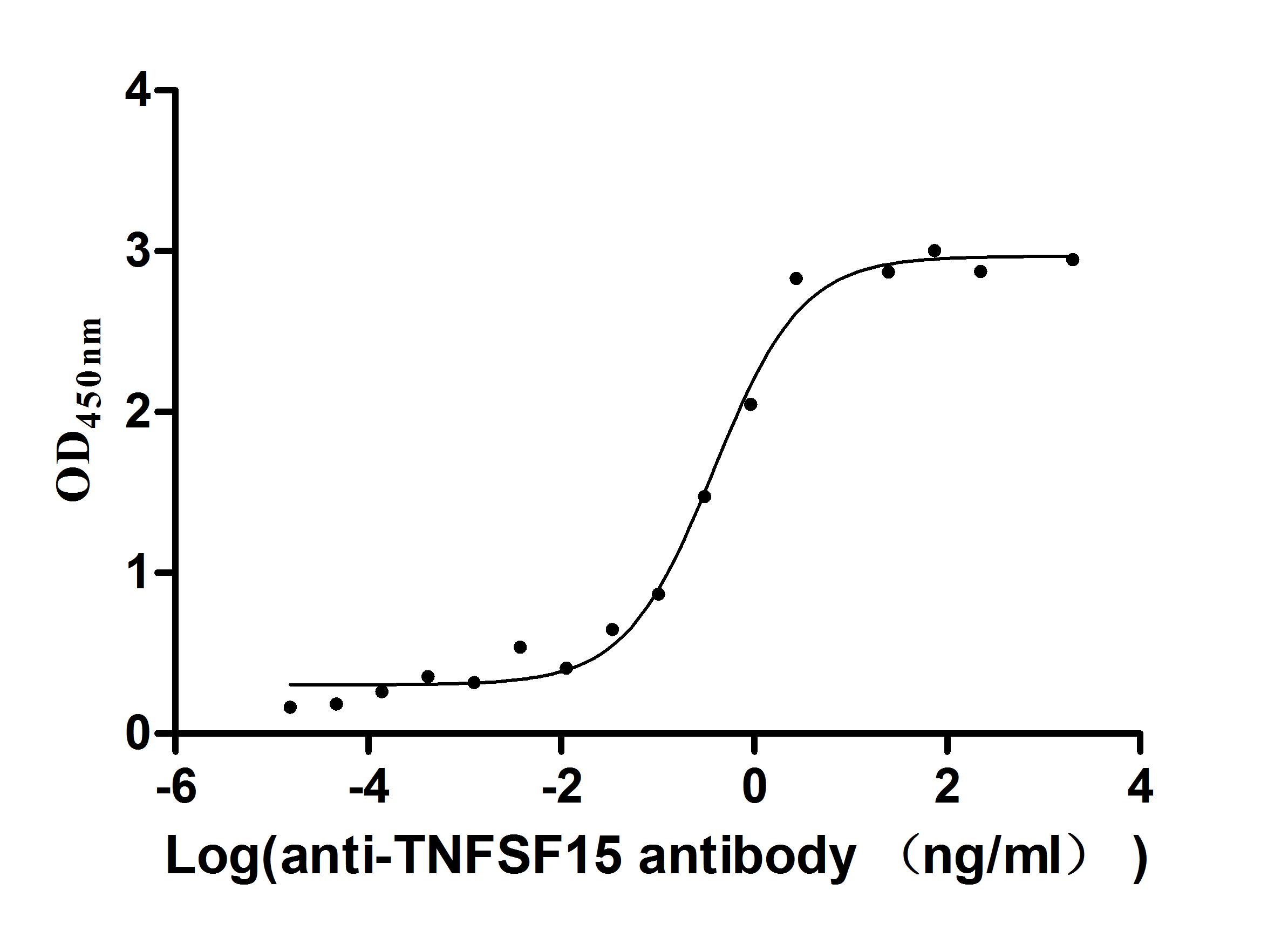Recombinant Mouse Perilipin-2 (Plin2)
-
货号:CSB-YP337564MO
-
规格:
-
来源:Yeast
-
其他:
-
货号:CSB-EP337564MO
-
规格:
-
来源:E.coli
-
其他:
-
货号:CSB-EP337564MO-B
-
规格:
-
来源:E.coli
-
共轭:Avi-tag Biotinylated
E. coli biotin ligase (BirA) is highly specific in covalently attaching biotin to the 15 amino acid AviTag peptide. This recombinant protein was biotinylated in vivo by AviTag-BirA technology, which method is BriA catalyzes amide linkage between the biotin and the specific lysine of the AviTag.
-
其他:
-
货号:CSB-BP337564MO
-
规格:
-
来源:Baculovirus
-
其他:
-
货号:CSB-MP337564MO
-
规格:
-
来源:Mammalian cell
-
其他:
产品详情
-
纯度:>85% (SDS-PAGE)
-
基因名:
-
Uniprot No.:
-
别名:Plin2; Adfp; Adrp; Perilipin-2; Adipophilin; Adipose differentiation-related protein; ADRP
-
种属:Mus musculus (Mouse)
-
蛋白长度:Full Length of Mature Protein
-
表达区域:2-425
-
氨基酸序列AAAVVDPQQ SVVMRVANLP LVSSTYDLVS SAYVSTKDQY PYLRSVCEMA EKGVKTVTSA AMTSALPIIQ KLEPQIAVAN TYACKGLDRM EERLPILNQP TSEIVASARG AVTGAKDVVT TTMAGAKDSV ASTVSGVVDK TKGAVTGSVE RTKSVVNGSI NTVLGMVQFM NSGVDNAITK SELLVDQYFP LTQEELEMEA KKVEGFDMVQ KPSNYERLES LSTKLCSRAY HQALSRVKEA KQKSQETISQ LHSTVHLIEF ARKNMHSANQ KIQGAQDKLY VSWVEWKRSI GYDDTDESHC VEHIESRTLA IARNLTQQLQ TTCQTVLVNA QGLPQNIQDQ AKHLGVMAGD IYSVFRNAAS FKEVSDGVLT SSKGQLQKMK ESLDEVMDYF VNNTPLNWLV GPFYPQSTEV NKASLKVQQS EVKAQ
-
蛋白标签:Tag type will be determined during the manufacturing process.
The tag type will be determined during production process. If you have specified tag type, please tell us and we will develop the specified tag preferentially. -
产品提供形式:Lyophilized powder
Note: We will preferentially ship the format that we have in stock, however, if you have any special requirement for the format, please remark your requirement when placing the order, we will prepare according to your demand. -
复溶:We recommend that this vial be briefly centrifuged prior to opening to bring the contents to the bottom. Please reconstitute protein in deionized sterile water to a concentration of 0.1-1.0 mg/mL.We recommend to add 5-50% of glycerol (final concentration) and aliquot for long-term storage at -20℃/-80℃. Our default final concentration of glycerol is 50%. Customers could use it as reference.
-
储存条件:Store at -20°C/-80°C upon receipt, aliquoting is necessary for mutiple use. Avoid repeated freeze-thaw cycles.
-
保质期:The shelf life is related to many factors, storage state, buffer ingredients, storage temperature and the stability of the protein itself.
Generally, the shelf life of liquid form is 6 months at -20°C/-80°C. The shelf life of lyophilized form is 12 months at -20°C/-80°C. -
货期:Delivery time may differ from different purchasing way or location, please kindly consult your local distributors for specific delivery time.Note: All of our proteins are default shipped with normal blue ice packs, if you request to ship with dry ice, please communicate with us in advance and extra fees will be charged.
-
注意事项:Repeated freezing and thawing is not recommended. Store working aliquots at 4°C for up to one week.
-
Datasheet :Please contact us to get it.
靶点详情
-
功能:May be involved in development and maintenance of adipose tissue.
-
基因功能参考文献:
- Genetic ablation of Plin2 in Akita mice leads to mitigation of ER stress, forestalling beta cell apoptosis, partially restoring beta cell mass, and ameliorating diabetes. PMID: 28102311
- Lipid-laden fibroblasts (lipofibroblasts) express the Perilipin 2 (Plin2) gene-product, PLIN2, commonly called adipose-differentiation related protein (ADRP)..The present study reports the generation of an inducible mouse Cre-driver line to target cells of the ADRP lineage. Robust Cre-mediated recombination in this mouse line was detected in mesenchymal cells of the postnatal lung PMID: 29045046
- Plin2 is essential for protecting the pool of skeletal muscle lipid droplet PMID: 28822960
- PLIN2 overexpression protects against autophagy, and its downregulation stimulates triglyceride catabolism via autophagy. PMID: 28548876
- data shows that a host genotype can modulate microbiome function without impacting community structure and identify Plin2 as a specific host determinant of diet effects on microbial function. PMID: 28877764
- ADRP knockdown significantly inhibited PDGFinduced increases in Vascular smooth muscle cell viability, caused G1 phase cell cycle arrest and decreased PCNA expression. PMID: 28713961
- Although lipopolysaccharide (LPS) can trigger inflammation in atherosclerosis, how LPS promotes atherogenesis through acting on macrophages is not very clear. Here, we study the role of adipophilin in LPS-induced inflammation. LPS can promote the expression of adipophilin through the ERK1/2-PPARgamma pathway. PMID: 29099637
- Cardiac PLIN2 plays an important pathophysiological role in the development of dynamic steatosis and that the latter was prevented by upregulation of intracellular lipases, including Hormone-sensitive Lipase. PMID: 28851734
- Plin2 liver-specific ablation alleviates diet-induced hepatic steatosis and inflammation via a PEMT-mediated mechanism. PMID: 26968211
- The relationship between M1-/M2-macrophage polarization and Adp-rich hepatocyte-consisting pseudolobules (PLs) was investigated in thioacetamide (TAA)-induced rat cirrhosis. PMID: 27453055
- results identify PLIN2 as a determinant of global changes in the hepatic lipidome and suggest the hypothesis that these actions contribute to SREBP-regulated de novo lipogenesis involved in non-alcoholic fatty liver disease. PMID: 27679530
- Taken together, these findings demonstrate that artesunate inhibits adipogenesis in 3T3-L1 preadipoytes through the reduced expression and/or phosphorylation levels of C/EBP-alpha, PPAR-gamma, FAS, perilipin A, and STAT-3. PMID: 27109481
- phosphorylation of PLIN2 is dependent on AMPK and occurs after the interaction of PLIN2 with the chaperone-mediated autophagy chaperone HSPA8/Hsc70. PMID: 26902588
- demonstrate a mutually beneficial relationship between PLIN2 deficiency and elevated apoA-I/HDL-C in preventing atherosclerosis development PMID: 26487692
- our findings highlight the relationship between protein stability and a previously unnoticed function of Plin2 during lipolysis in adipocytes. PMID: 26876687
- PLIN2 involves lipid modulation of GSK3 activity, GSK3 substrate expression, and cell growth/survival. PMID: 26598603
- Plin2 modulates rapid effects of diet on fecal lipid levels, enterocyte CLD contents, and fuel utilization properties of mice that correlate with structural and functional differences in their gut microbial communities PMID: 26147095
- Postprandial triglyceride rich lipoproteins may be involved in atherosclerotic plaque formation through the regulation of perilipin-2 and perilipin-3 proteins in macrophages. PMID: 25595097
- flavonoids from Coreopsis tinctoria extracts can reduce blood lipid without liver function damage by down-regulating ADRP. PMID: 25512113
- The structure and function of specific domains responsible for Plin2-lipid interactions were identified. PMID: 25338003
- Plin2 has a critical pathogenic role in experimental alcoholic liver disease PMID: 24831094
- PLIN2-mediated lipid accumulation and utilization by the liver is important for efficient liver regeneration in response to partial hepatectomy and toxic liver injury. PMID: 23928401
- Together, our findings suggest that WAY, an FXR agonist, attenuates liver steatosis through multiple mechanisms critically involved in the development of hepatosteatosis. PMID: 24875360
- Collectively these data suggest that whereas perilipin 1 potently suppresses basal lipolysis in adipocytes, perilipins 2 and 3 facilitate higher rates of basal lipolysis PMID: 24927580
- metformin prevents hepatic steatosis by regulating the expression of ADRP PMID: 24253218
- Results suggest that Plin2 inhibits glucose uptake by interacting with, and regulating cellular targeting of SNAP23 to lipid droplets. PMID: 24040030
- Data suggest that both Sertoli cells and germ cells (spermatids), which produce neutral lipids and store them in lipid droplets, express Plin2; expression in Plin2 is up-regulated as spermatogenesis progresses. PMID: 23962454
- Our study provides the first evidence that Plin2 contributes to HFD-induced obesity by modulating food intake, and that its absence prevents obesity-associated adipose tissue inflammatory foci and liver steatosis. PMID: 23402988
- Data indicate that PLIN2 and PLIN3 may participate in acute lipid droplet formation in mammalian testes. PMID: 23056214
- Data suggest that perilipin 2 is essential for lipid storage in skeletal muscle and functions by enhancing partitioning of excess fatty acids toward triglyceride storage in lipid droplets, thereby blunting lipotoxicity-associated insulin resistance. PMID: 22807032
- Plin2 interacts directly with lipids on the surface of lipid droplets and influences levels of key enzymes and lipids involved in maintaining lipid droplet structure and function. PMID: 22744009
- Cideb and perilipin 2 play opposing roles in controlling VLDL lipidation and hepatic lipid homeostasis PMID: 22661308
- Prolactin and epidermal growth factor stimulate adipophilin synthesis in HC11 mouse mammary epithelial cells via the PI3-kinase/Akt/mTOR pathway. PMID: 22426621
- Data indicate that perilipin 2 deficiency does not increase cholesterol-induced toxicity in macrophages, and thus supports the safety of targeting PLIN2 to prevent foam cell formation and atherosclerosis. PMID: 22427949
- Adipophilin regulates maturation of cytoplasmic lipid droplets and alveolae in differentiating mammary glands PMID: 21878492
- interactions between the four-helix bundle of ADPH and membrane phospholipids may be an initial step in milk lipid secretion. PMID: 21383012
- Data suggest that glucagon has a role in the reorganization of endoplasmic reticulum membranes to generate ADRP-associated lipid-poor particles in hepatic cells, which is related to LD formation during lipid storage. PMID: 20529882
- Data suggest that adipophilin is involved in atherosclerotic progression. PMID: 20710016
- Perilipin-2 is a lipid droplet protein in oocytes and its induction in the cumulus-oocyte complexes concurrent with dynamic reorganisation of lipid droplets suggests marked changes in lipid utilisation during oocyte maturation. PMID: 20883652
- a nonredundant role for ADFP in determining the size and distribution of hepatic lipid droplets PMID: 20424269
- ADFP is important in regulation of lipid metabolism and insulin secretion in beta-cells PMID: 20484013
- adipophilin protein expression in muscle is involved in maintaining insulin sensitivity. PMID: 20030713
- ADRP stimulates lipid accumulation and lipid droplet formation in murine fibroblasts PMID: 12217895
- a putative alpha-helical region between amino acids 189 and 205 is implicated in both lipid storage droplet (LSD) targeting and regulation of LSD formation PMID: 12562852
- targeting of the lipid droplet-binding adipocyte differentiation-related protein. PMID: 12591929
- result indicates that ADRP has two independent domains related to its localization and lipid droplet biogenesis; the unique property found in the present study may be related to physiological function of ADRP [ADRP] PMID: 12804567
- Diabetic kidneys specifically expressed several genes normally found in adipocytes, including adipocyte differentiation-regulated protein (ADRP) PMID: 15075187
- GDP-bound ARF1 induces dissociation of ADRP from the Lipid droplet surface;. PMID: 15336557
- the non-lipid droplet pools of S3-12, adipophilin, and TIP47 constitute a ready reservoir of coat proteins to permit rapid packaging of newly synthesized triacylglycerol and to maximize energy storage during nutrient excess PMID: 15731108
- proteolytic degradation of ADRP mediated through the ubiquitin/proteasome pathway appears to be a major mode for the post-translational regulation of ADRP PMID: 16115879
显示更多
收起更多
-
亚细胞定位:Membrane; Peripheral membrane protein. Lipid droplet.
-
蛋白家族:Perilipin family
-
组织特异性:Adipose tissue specific. Expressed abundantly and preferentially in fat pads.
-
数据库链接:
KEGG: mmu:11520
STRING: 10090.ENSMUSP00000000466
UniGene: Mm.381
Most popular with customers
-
Recombinant Human C-C chemokine receptor type 8 (CCR8)-VLPs (Active)
Express system: Mammalian cell
Species: Homo sapiens (Human)
-
Recombinant Human Oncostatin-M (OSM), partial (Active)
Express system: Mammalian cell
Species: Homo sapiens (Human)
-
Recombinant Human Serine/threonine-protein kinase receptor R3 (ACVRL1), partial (Active)
Express system: Baculovirus
Species: Homo sapiens (Human)
-
Recombinant Mouse Cytotoxic and regulatory T-cell molecule (Crtam), partial (Active)
Express system: Mammalian cell
Species: Mus musculus (Mouse)
-
-
Recombinant Human Cadherin-6(CDH6),partial (Active)
Express system: Mammalian cell
Species: Homo sapiens (Human)
-
Recombinant Human Kidney-associated antigen 1(KAAG1) (Active)
Express system: E.coli
Species: Homo sapiens (Human)
-
Express system: Mammalian cell
Species: Homo sapiens (Human)


